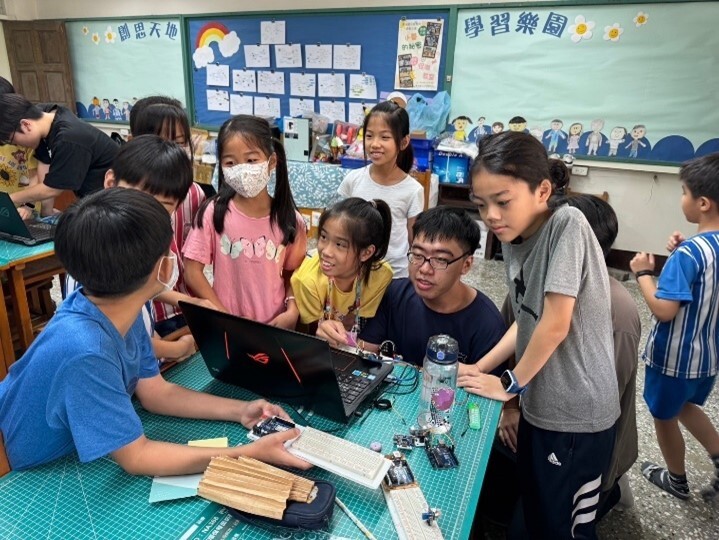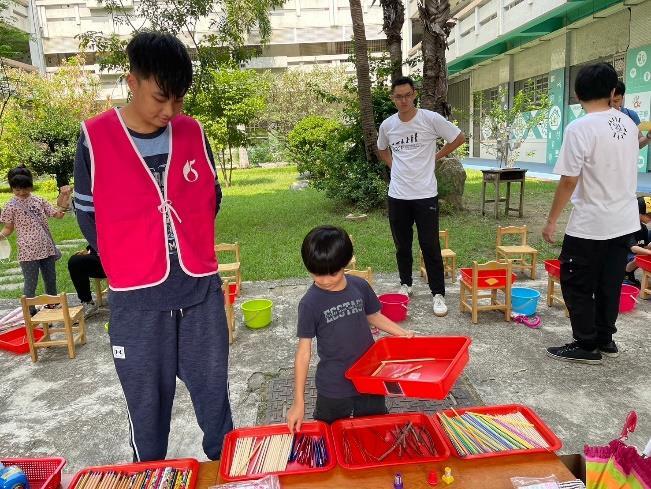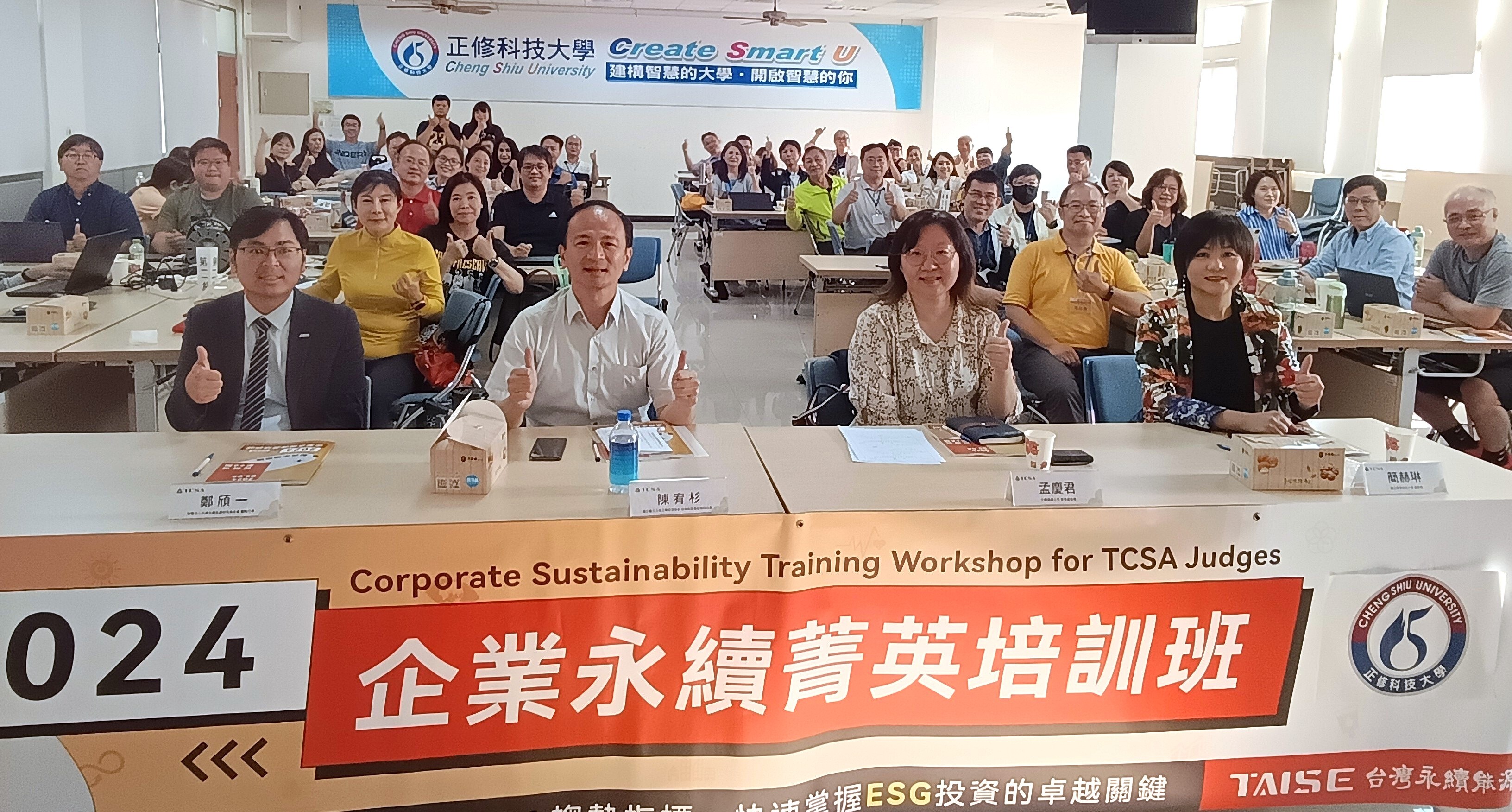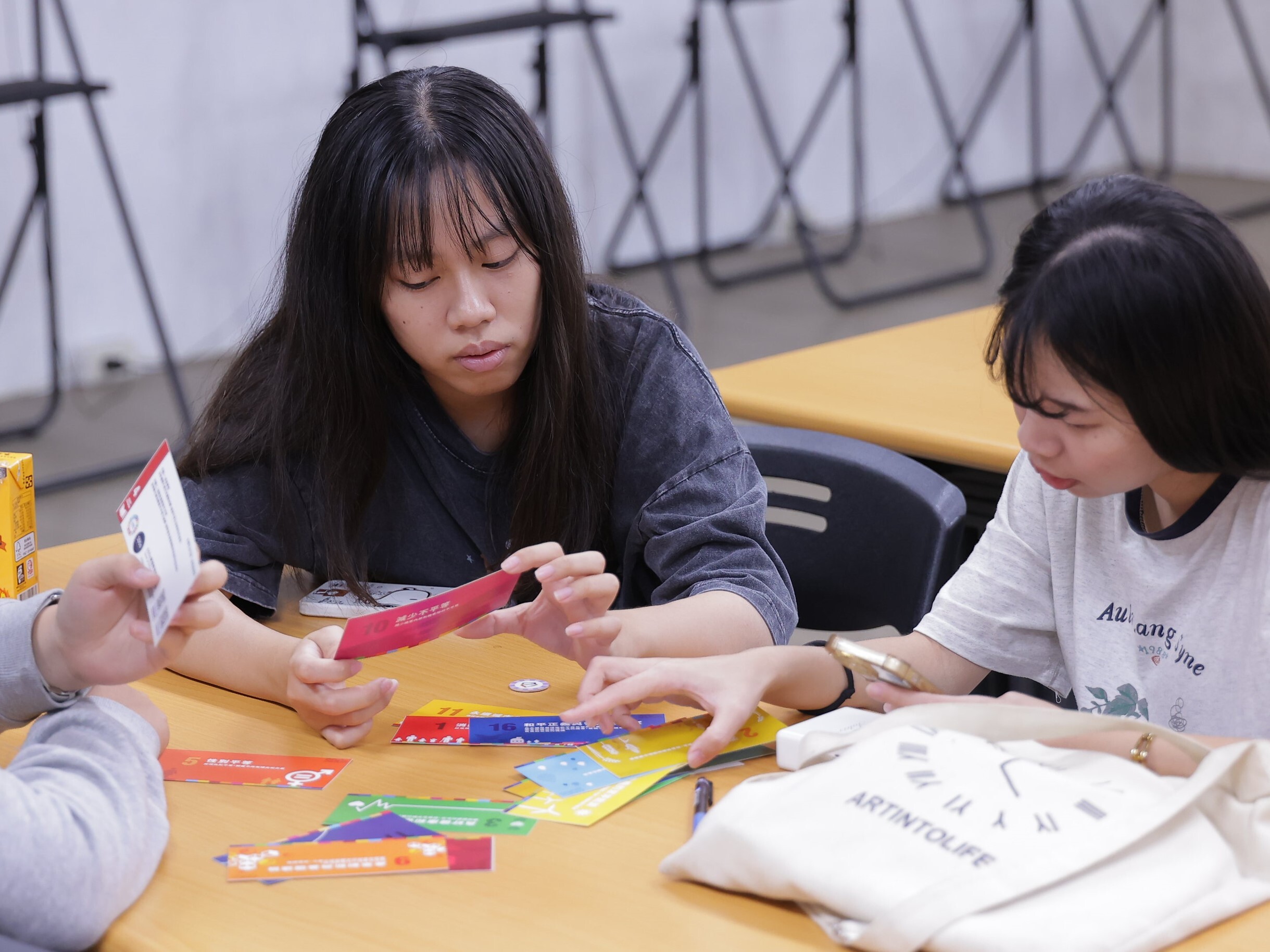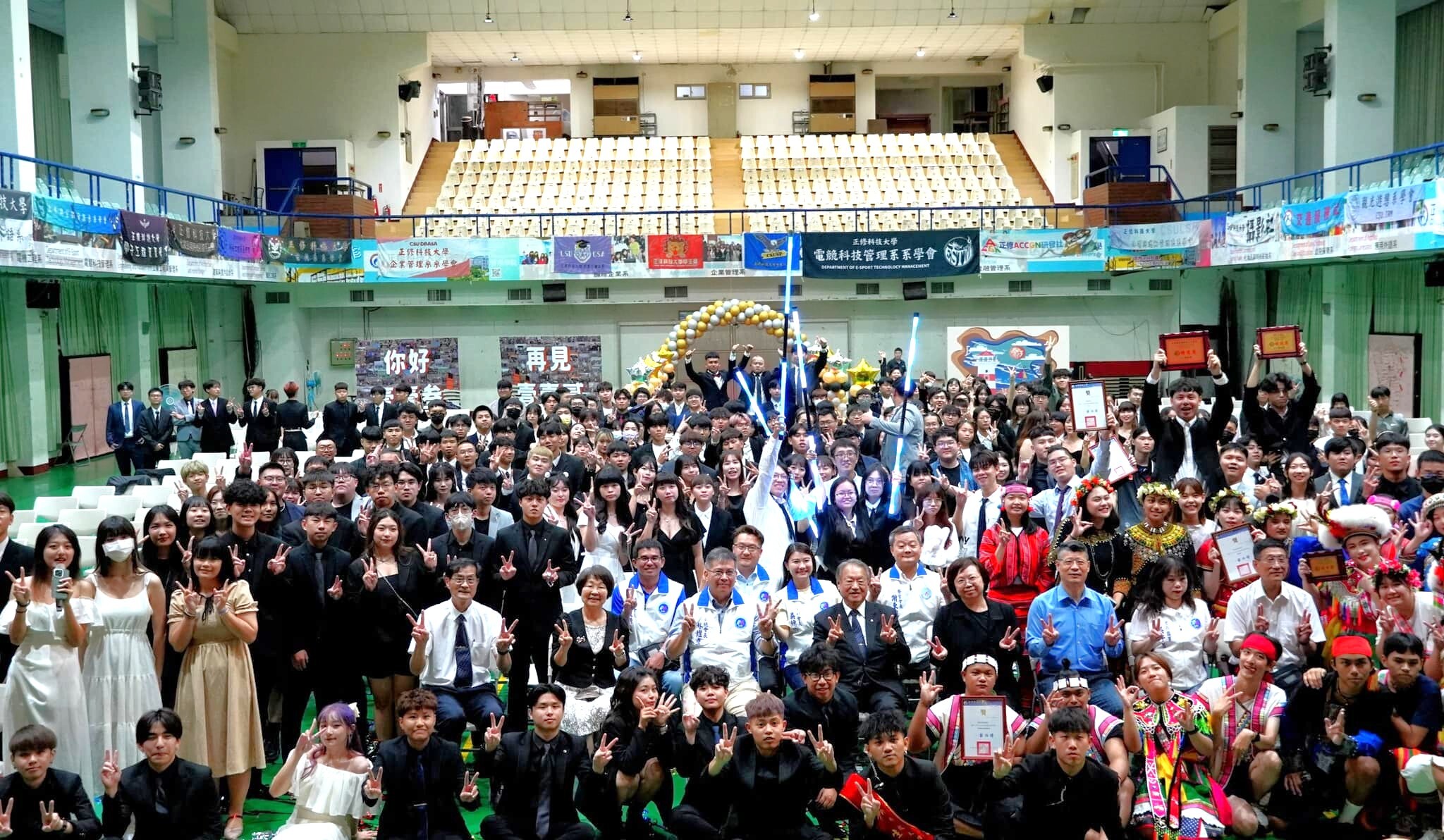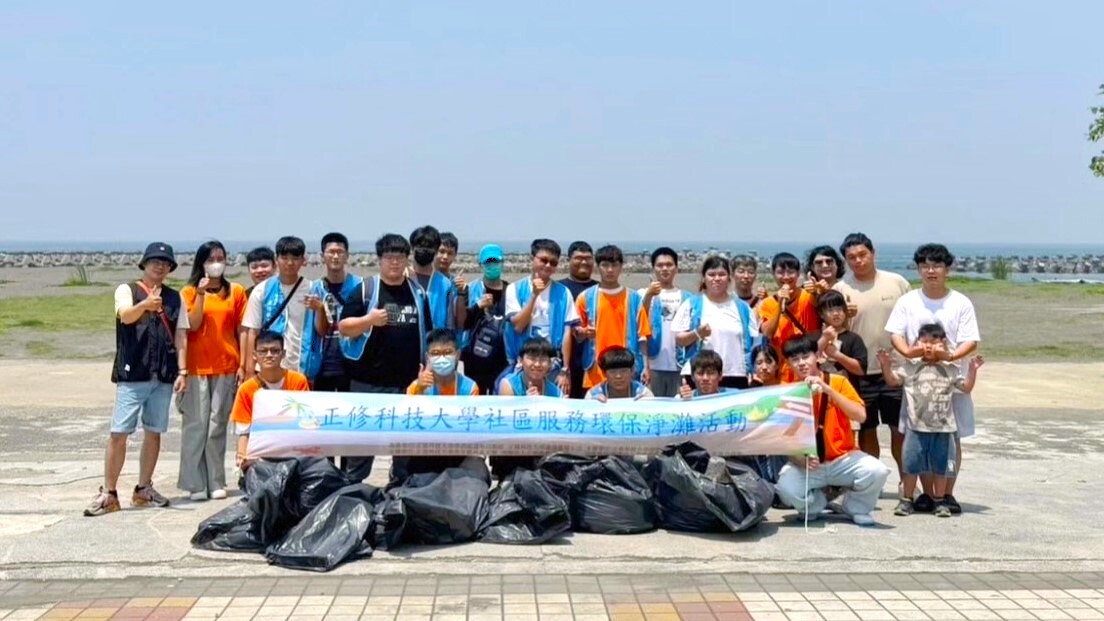Sustainable Education
Aligning with Global Education Trends, the University actively integrates the United Nations Sustainable Development Goals (SDGs) into curriculum design. By linking with institutional development plans and the Higher Education Sprout Project, CSU advances sustainability-focused courses that merge social issues with innovative teaching. This approach connects theory with practice, enriches student learning, and cultivates future talents equipped with sustainability literacy.
SDGs-Related Courses
Since Academic Year 2020, the University has tracked course alignment with SDGs, initially through database keyword mapping and, starting in 2022, through faculty reporting in course syllabi.
In Academic Year 2023, CSU offered 6,914 courses, with 6,526 linked to SDGs (94.4%). These courses cover diverse sustainability topics such as green energy, low-carbon practices, biodiversity, social welfare, and public health—for example, Green Building Technology, Introduction to Marine Ecology and Conservation, Social Responsibility, and Environment and Human Ecology.
The top four SDG alignments were: SDG 4 Quality Education, SDG 8 Decent Work and Economic Growth, SDG 3 Good Health and Well-being, and SDG 9 Industry, Innovation and Infrastructure. This alignment reflects CSU’s educational strategy, and the University will continue strengthening curriculum integration with SDGs to embed sustainability into daily learning.
Course Alignment with SDGs by College
|
Academic Year |
College |
College of Engineering |
College of Health and Management |
College of Living Creativity |
Others |
Total |
|
2021 |
Total Courses Offered |
1,342 |
1,270 |
860 |
192 |
3,664 |
|
Number of SDGs-Linked Courses |
1,246 |
1,156 |
767 |
171 |
3,340 |
|
|
Percentage of SDGs-Linked Courses (%) |
92.85% |
91.02% |
89.19% |
89.06% |
91.16% |
|
|
Number of SDGs Covered |
2,281 |
1,539 |
1,197 |
364 |
6,328 |
|
|
Average SDGs per Course |
1.83 |
1.33 |
1.56 |
2.13 |
1.89 |
|
|
2022 |
Total Courses Offered |
2,847 |
1,587 |
2,692 |
394 |
7,520 |
|
Number of SDGs-Linked Courses |
2,728 |
1,510 |
2,512 |
374 |
7,124 |
|
|
Percentage of SDGs-Linked Courses (%) |
95.82% |
95.15% |
93.31% |
94.92% |
94.73% |
|
|
Number of SDGs Covered |
5,192 |
3,218 |
4,786 |
837 |
14,033 |
|
|
Average SDGs per Course |
1.90 |
2.13 |
1.91 |
2.24 |
1.97 |
|
|
2023 |
Total Courses Offered |
2,731 |
1,739 |
2,067 |
395 |
6,914 |
|
Number of SDGs-Linked Courses |
2,570 |
1,644 |
1,943 |
369 |
6,526 |
|
|
Percentage of SDGs-Linked Courses (%) |
94.7 |
94.5 |
94.0 |
93.4 |
94.4% |
|
|
Number of SDGs Covered |
5,026 |
3,530 |
3,967 |
861 |
13,384 |
|
|
Average SDGs per Course |
1.96 |
2.15 |
2.04 |
2.33 |
2.05 |
Note: Data were obtained from the “Higher Education Student Information Database,” including the “Actual Course Structure Tables” (AY 2021–2023) and the University’s internal course syllabus database.
Promoting Sustainability and University Social Responsibility (USR) Curriculum Development
Micro-Credential Program in Sustainability: Expanding Student Perspectives
To embed sustainability in campus learning, CSU will launch a Micro-Credential Program in Sustainability in Academic Year 2025. Students must complete 8 credits from liberal education courses across four sustainability-related domains (at least 2 credits each) to earn certification. This program encourages all students to engage in sustainability and social responsibility learning, broadening their perspectives and preparing them for diverse future career needs.
USR Innovative and Community-Engaged Courses: Applying Knowledge to Local Issues
SU encourages faculty to design community-engaged courses, guiding students to apply professional skills in serving society and addressing local needs. Since 2017, the University has offered such USR courses; in Academic Year 2023, 78 courses were opened with around 3,420 student enrollments.
|
Academic Year |
Number of Courses Offered |
Number of Students Enrolled |
|
2021 |
84 |
4,258 |
|
2022 |
72 |
3,230 |
|
2023 |
78 |
3,420 |
Note: In 2023, due to declining student numbers from low birth rates, adjustments were made—based on Curriculum Committee recommendations—to the recognition of professional courses under the USR credit program.
|
|
|
USR Credit Program
Since Academic Year 2020, the College of Living Creativity has offered the USR Credit Program, requiring 16 credits (8 core + 8 professional) for certification. The program trains students to identify social issues and design feasible solutions through a PBL model, linking to CSU’s USR practice sites. Cross-disciplinary faculty, engaged in community care, local revitalization, and industrial innovation, guide students in applying professional knowledge to real-world actions, fostering service and problem-solving skills.
Each year, five external experts review curriculum relevance to employability, learning goals, and industry needs, ensuring continuous improvement. In the second semester of AY2023, 2,276 students enrolled in cross-disciplinary programs, with 517 (26.4%) in the USR program. Among 153 graduating seniors, 146 completed requirements, achieving a 91.3% completion rate.
Sustainability Faculty Learning Communities
Led by the Teaching Development Center, CSU’s Sustainability Faculty Learning Communities provide professional training, consultation, and funding support to integrate SDGs into curricula and promote practice-based teaching. Faculty are encouraged to form thematic groups, organize workshops, and host seminars to deepen sustainability education and drive educational reform. In 2024, 18 sustainability-focused faculty communities were established.
Sustainability Faculty Learning Communities In 2024
|
Community Name |
Number of Participating Faculty |
|
Community on Strategies to Enhance Capstone Project Presentation Outcomes |
13 |
|
Multimedia Applications and SDGs Interdisciplinary Knowledge Community |
5 |
|
Digital Learning Interdisciplinary Community |
6 |
|
SDGs-Integrated PBL and Active Learning Community |
8 |
|
Sustainable Living Aesthetics Teaching Community |
18 |
|
Food Safety and Sustainability Community |
12 |
|
Chemical Engineering Energy-Saving & Sustainability Community |
5 |
|
STEAM Education Interdisciplinary Sharing Community |
5 |
|
Quality Education for Sustainability Community |
5 |
|
Interdisciplinary Sustainability Community (1) |
7 |
|
Interdisciplinary Sustainability Community (2) |
5 |
|
Interdisciplinary Sustainability Community (3) |
5 |
|
Interdisciplinary Sustainability Community (4) |
14 |
|
Interdisciplinary Sustainability Community (5) |
14 |
|
Interdisciplinary Sustainability Community (6) |
5 |
|
Long-Term Care & Health Promotion for Sustainability Community |
14 |
|
Local Culture Heritage and Professional Growth Community |
9 |
|
Sustainable Ocean Science Education Professional Growth Community |
7 |
|
Total |
157 |
|
|
|
Sustainability Student Clubs
Participation in student clubs and associations is vital for developing workplace readiness and soft skills such as teamwork, problem-solving, and resilience. CSU established guidelines to encourage student engagement in these activities.
In Academic Year 2023, student clubs actively supported the SDGs through initiatives in environmental protection and resource reuse, such as beach cleanups, vegetarian advocacy, second-hand charity sales, book exchanges, and recycling workshops in priority education areas. For example, the Environmental Pioneers and Youth Volunteer Service Corps organized a beach cleanup at Wenzi Temple in Jiadong Township and Zhenhai Park in Donggang, Pingtung, with 58 participants.
The Office of Student Affairs regularly organizes leadership camps and training programs for club leaders, strengthening organizational capacity, student engagement, and long-term club development. Through club evaluations and incentive awards, student motivation to participate and serve as leaders is further enhanced. In recent years, CSU’s Student Association and clubs have earned national recognition—for example, the Department of Early Childhood Care Association received the Excellence Award in Self-Governance at the 2024 National University Club Evaluation, while the Student Association won the “Double Governance Award” at the 2024 National Student Association Exhibition.
|
Club Name |
Mission / Service Model |
|
Environmental Pioneers |
● Promote environmental awareness and enhance students’ ability to practice sustainability. ● Activities include environmental lectures, awareness campaigns, and campus improvement initiatives. |
|
Tzu Chi Collegiate Youth Club |
● Promote Tzu Chi’s humanistic values, fostering compassion and a spirit of service. ● Activities include Tzu Chi philosophy learning, stress-relief workshops, handicraft experiences, community service, vegetarian advocacy, and visits to the Niaosong Recycling Station. |
|
Youth Volunteer Service Corps |
● Cultivate students’ service spirit and social responsibility through volunteer work. ● Activities include volunteer training, community watch services, after-school tutoring for children, charity sales, beach cleanups, and environmental education campaigns. |
|
Traffic Safety Service Club |
● Promote traffic safety knowledge and raise students’ awareness of safe practices. ● Activities include traffic control training and traffic safety education campaigns on and off campus. |
|
Chunhui Volunteer Service Club |
● Promote health awareness by preventing drug abuse and reducing tobacco hazards. ● Activities include volunteer training, anti-smoking and anti-drug education, and outreach programs in elementary schools. |
|
International Buddy Club |
● Enhance global perspectives, improve international students’ Chinese proficiency, and promote cross-cultural exchange between local and international students. ● Activities include cultural exchange, language learning, and community volunteer services. |
|
Glimmer Volunteer Corps |
● Care for disadvantaged groups through volunteer services. ● Activities include special education support, homeless services, community care, and general volunteer work. |
|
Public Welfare Leadership Club |
● Develop students’ leadership skills and social responsibility through group training and service to on- and off-campus communities, fostering self-awareness and personal growth. ● Activities include leadership training and community service. |
|
|
|


